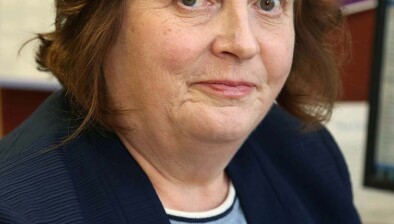High Court: HSE did not owe a duty of care to parents in nervous shock case involving daughter’s cervical cancer diagnosis

The High Court has ruled that the Health Service Executive did not owe a duty of care to the parents of a woman who died from cervical cancer following an alleged misdiagnosis in the cancer screening process.

About this case:
- Citation:[2023] IEHC 394
- Judgment:
- Court:High Court
- Judge:Mr Justice Tony O'Connor
The HSE had argued that the decision in Morrissey v. Health Service Executive and Ors. [2019] IEHC 268 had conclusively determined that there was no duty of care owing to plaintiffs arising from negligent diagnoses.
Delivering judgment in the case, Mr Justice Tony O’Connor considered the Morrissey decision in detail and held that there was no basis to overturn the core finding that there was no duty of care owed. Accordingly, the court was satisfied that the plaintiffs were bound to fail in nearly all of the claim for nervous shock.
The court would hear further submissions on a point not decided in Morrissey which related to a consultant gynaecologist revealing the cause of the daughter’s death “in an inappropriate manner”.
Background
The plaintiffs were the parents of a woman who had died due to metastatic cervical cancer. In 2020, they issued personal injuries proceedings against the HSE alleged that they had suffered nervous shock as a result of the breach of duty owed to them. It was said that the nervous shock arose from, inter alia, learning in January 2014 that their daughter had cancer, accompanying her through the trauma of losing her pregnancy due to cancer, witnessing the circumstances of her passing in April 2015 and learning that her death had been unnecessary.
It was also alleged that there was a significant delay by the HSE in disclosing available information about the nature of treatment which ought to have been taken for their daughter’s health and survival. Finally, it was claimed that the parents had learned of the cause of death in May 2018 in an inappropriate manner from a consultant gynaecologist/colposcopist.
The HSE delivered its defence and included a claim against CPL, the screening company contracted by the HSE. Prior to the trial, which was listed for May 2023, the HSE and CPL brought applications for a trial of preliminary issues.
The defendants had raised two issues which, it was said, disentitled the plaintiffs to relief. First, it was claimed that the HSE did not owe a duty of care to the plaintiffs by virtue of the High Court decision in the Morrissey case.
Second, it was said that the plaintiffs were barred from issuing and prosecuting the present proceedings because they were listed as statutory dependents in fatal injury proceedings brought by the daughter’s husband in 2018. The defendants sought to rely on section 48(2) of the Civil Liability Act 1961 which provided that “only one action for damages may be brought against the same person in respect of the death”.
High Court
Mr Justice O’Connor delivered a judgment which was directed solely to the two points raised by the defendants in their motions. On the Morrissey point, the court considered the decision of Cross J. in detail. In that case, the High Court had determined that the husband of the plaintiff who was misdiagnosed as being free from cervical cancer was not entitled to a duty of care from the HSE regarding notification of his wife’s condition.
The plaintiffs argued that the Morrissey decision regarding duty of care to Mr Morrissey was wrong and that, accordingly, the court should not follow that decision. In this respect, the plaintiffs relied on the principle articulated in Re: Worldport Ireland Ltd. (in liquidation) [2005] IEHC 189.
The plaintiffs directed the court to the submissions from the Morrissey decision and noted inter alia that the HSE had “no issue” about Mr Morrissey seeking damages for nervous shock. Further, the screening laboratory (Medlab) had submitted that Mr Morrissey’s claim for nervous shock was contributed to by the HSE’s failures. As such, it was argued that Cross J. should not have dismissed the nervous shock claim on the grounds that none of the defendants had contested the claim.
It was also claimed that the decision of Cross J. was “utterly absurd” insofar as it precluded a duty of care to Mr Morrissey on public policy grounds and therefore should not be followed.
Finally, the plaintiffs attempted to rely on a settlement reported by The Irish Times in January 2020. In that case, €150,000 was provided to a family members of a pregnant woman on life support who witnessed her deterioration over time.
Mr Justice O’Connor began his decision by outlining that a court had to make a determination based on the submissions before it and it was possible for a court to reach different conclusions on this basis (see O’Riordan v. O’Connor [2015] 1 I.R. 551). In this regard, it was said that the court had no interest in learning of why an appeal was not pursued by Mr Morrissey to the Supreme Court on the duty of care point.
Further, the court was not satisfied by the plaintiff introducing written submissions from other proceedings in order to challenge conclusions on the law in the present set of proceedings. Such a practice would lead to unnecessary repetition and a potential for unsupervised selectivity.
The court went on to analyse the reasoning in Morrissey and the conclusions reached by the trial judge. In particular, the court considered the trial judge’s assessment under the Kelly v. Hennessy [1995] 3 IR 253 principles.
The court noted that the Oireachtas had recently legislated for duty of care in patient disclosure and the legislation tended to suggest the absence of a duty of care as claimed by the plaintiffs.
In the circumstances, there were “no substantial reasons” for finding that Cross J. erred in his assessment in Morrissey that no duty of care existed. The court held that little weight could be attached to anecdotal evidence of other nervous shock claims.
However, the court held that there was a difference between the present claim and the Morrissey claim. The present plaintiffs made allegations in respect of the inappropriate manner that the consultant revealed the cause of their daughter’s death. The court held that it would not reach a concluded view on liability attaching to this allegation and would hear further submissions from counsel.
On the s.48 point, the court held that the plaintiffs were not relying on the common law right to sue for wrongful death, but were instead seeking damages for nervous shock. The plain wording of the section limiting actions in respect of death did not include nervous shock claims. As such, the court was satisfied that the plaintiffs were not barred by statute from bringing the proceedings.
Conclusion
In summary, the court determined that the majority of the plaintiff’s claim for nervous shock was precluded by the Morrisey decision. In light of the court’s findings, the judge determined that it would hear the parties on the consequences of the judgment.
Mitchell and Anor. V. The Health Service Executive [2023] IEHC 394










